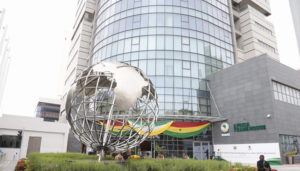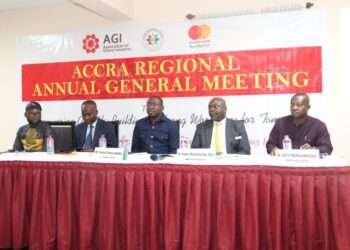Director General for National Development Planning Commission (NDPC), Dr Kodjo Mensah Abrampa, has disclosed that local government authorities across the country are being empowered to leverage on the Africa Continental Free Trade Area (AfCFTA).
According to him, some programs have been identified to enable and equip businesses with the right tools to aid them in scaling their businesses.
He made this revelation at a meeting for trade and development stakeholders in Kumasi under the theme: ‘Unlocking the potentials of local authorities to harness the benefits of the Africa Continental Free Trade Area’.
The stakeholders meeting was intended to draw out tools and guidelines for stakeholders to benefit from AfCFTA.
“As a country, I’m sure we’ve heard we are going very far. Specific programs have been identified to support the medium and small scale enterprises at their respective districts. We’ve also signed all the agreements that are necessary to get this going as country.
“But I’m very much concerned [about] the preparedness of the districts. So, beyond just talking about it, we are going to create the necessary tools, the necessary guidelines and hold the hands of the district managers to be able to also respond to some of these opportunities that have been created by the Ministry of Trade and Industry”.
Dr Kodjo Mensah Abrampa
Building local economies to benefit from AfCFTA
Dr Abrampa further revealed that preparedness is crucial for the local economy to engage in the single trading market. With this, he revealed that his outfit has the planning capacity at the local level for effective participation in the AfCFTA.

“So, it’s not just looking at providing just social facilities, but it’s looking at how we can build our local economies. That is the only process by which we can transform our agriculture and can also transform our industrial development process and more importantly, create the jobs…
“It is also a big opportunity for us to develop our skills. The skills will help us to also utilize our local resources, enhance the quality and quantity and be able to compete on the African trade market”.
Dr Kodjo Mensah Abrampa
On his part, the head of Ghana AfCFTA Coordinating office at the ministry of Trade and Industry, Dr Fareed Arthur, noted that the national structures are already in place to support local businesses to export into the African region.
“In terms of preparation, we are ready. I’d say we can now receive and export under AfCFTA. The other issue is whether the other countries that we trade with are ready, but for the Ghana side we’ve appointed the competent authority which is customs. We have the national structures in place [and] inter-ministerial facilitation committee; these are all in place.
“So far, from our records, about eighteen companies are in various stages of registration and once they have finished, we are holding their hands to enable them to also export”.
Dr Fareed Arthur
Also, the economic advisor for Ghana and Gambia at the UNDP, Frederick Mugisha, explained that once the plans, budgets and statistics are used, it brings some definiteness on the issue of trading.
“Anything that helps development move forward, we are there and so the AfCFTA is one of them. The other thing is when we use the development tools… then we are able to sustain something more”.
Frederick Mugisha
Read Also: Twitter ban: Commonwealth says it’s monitoring repression in Nigeria





















